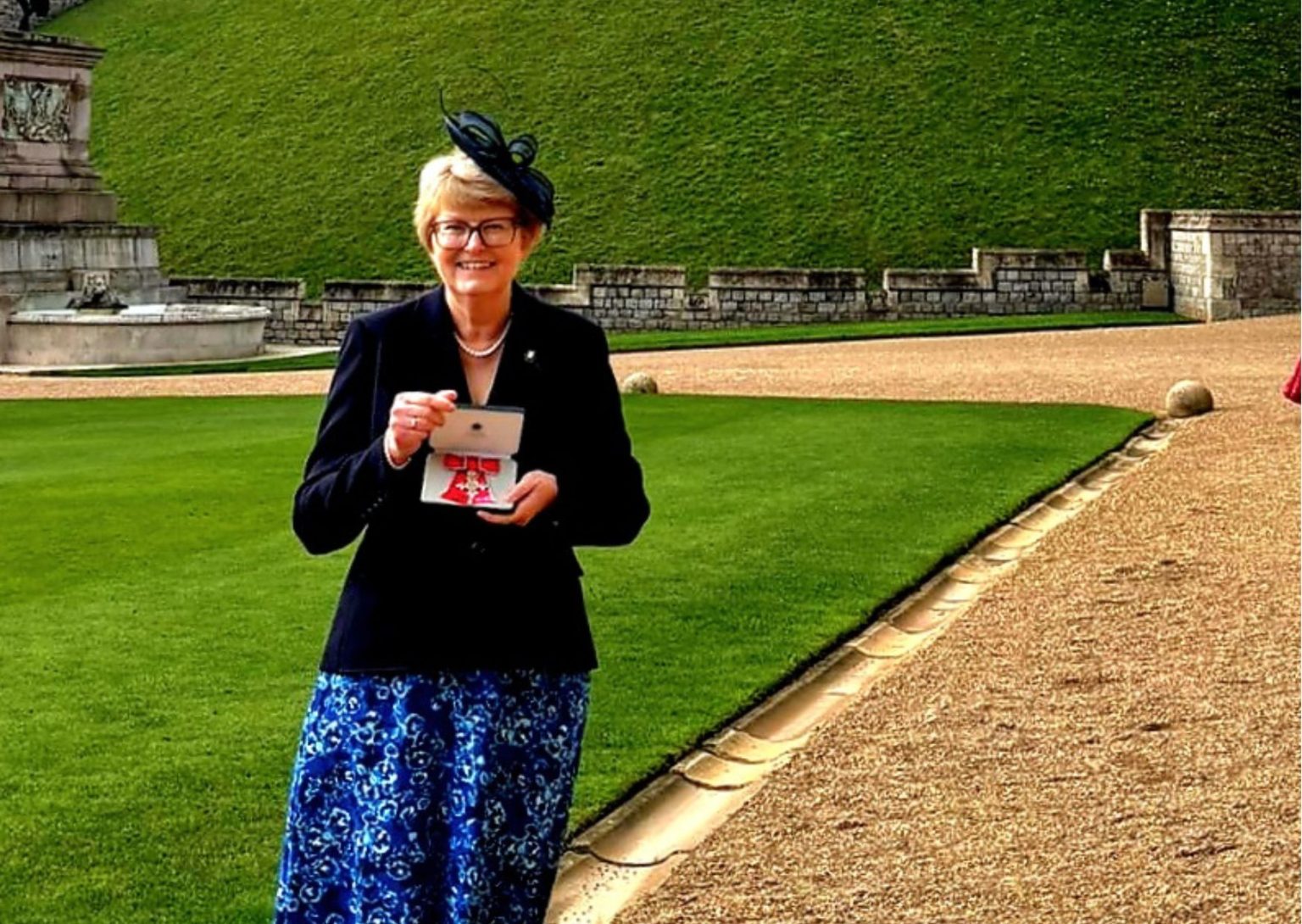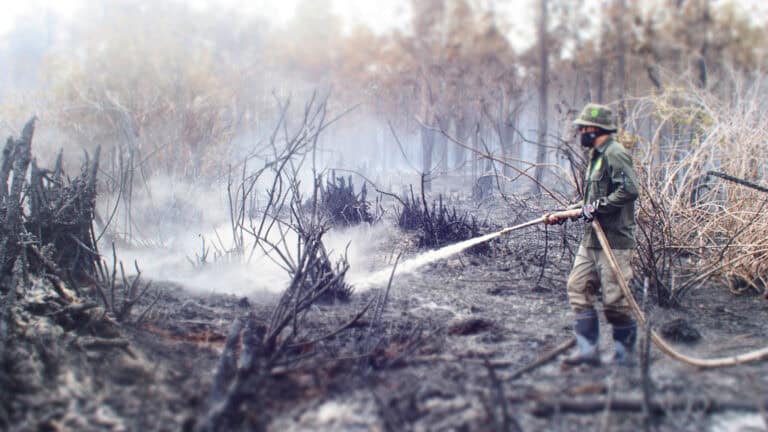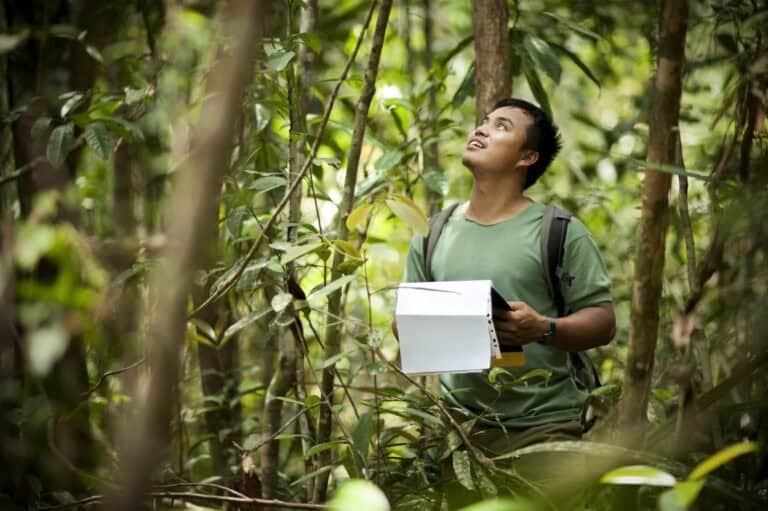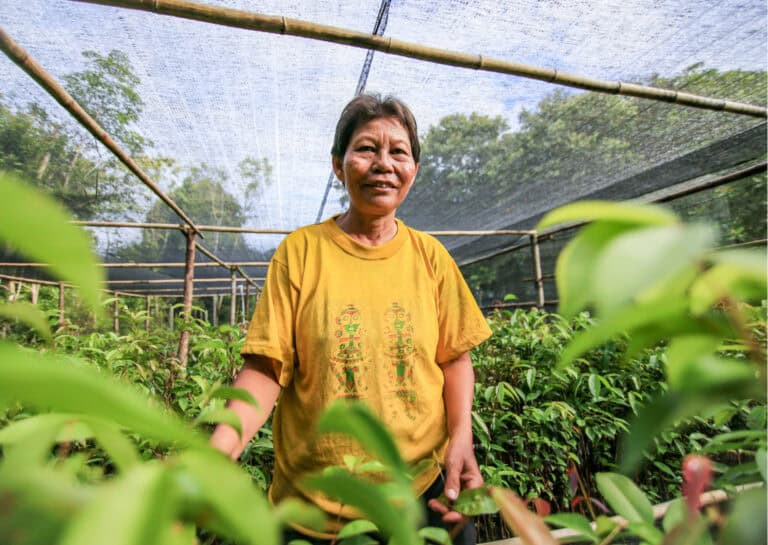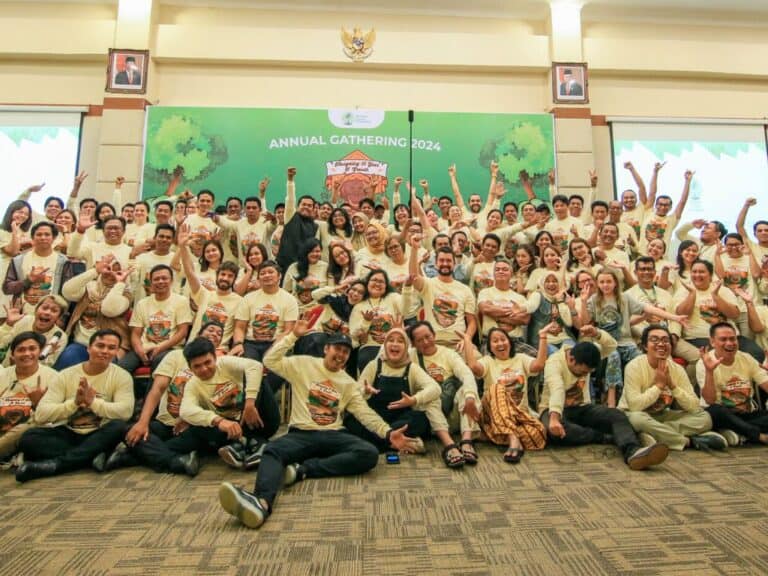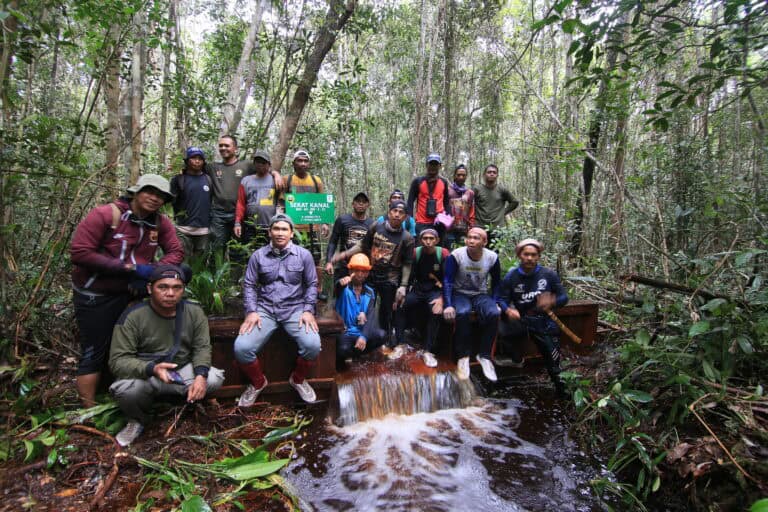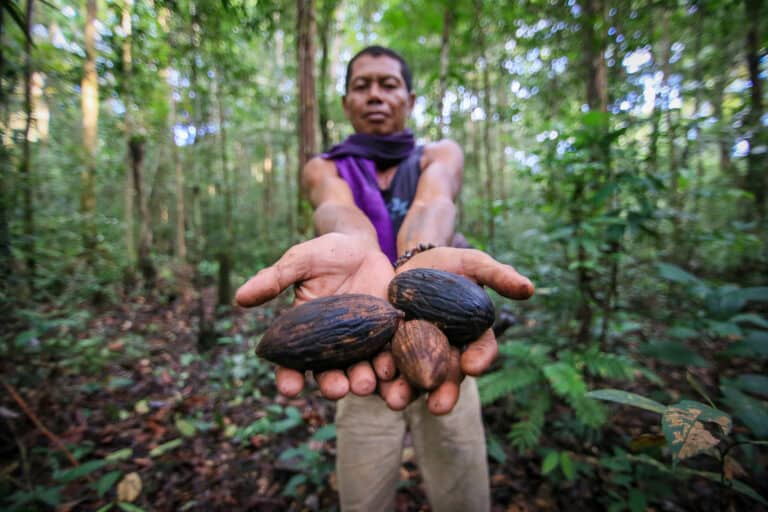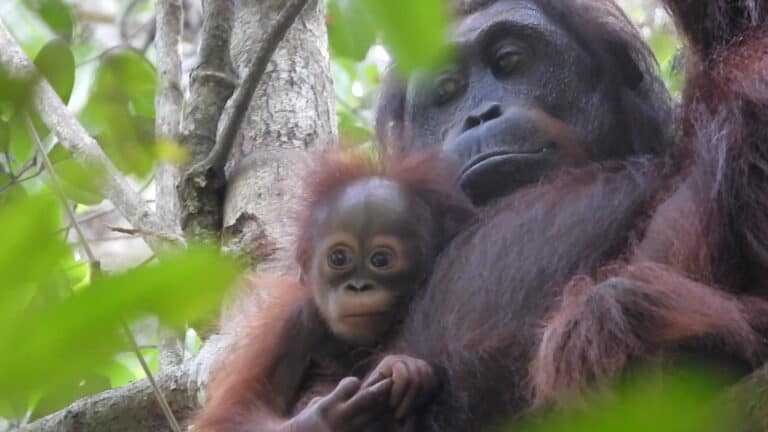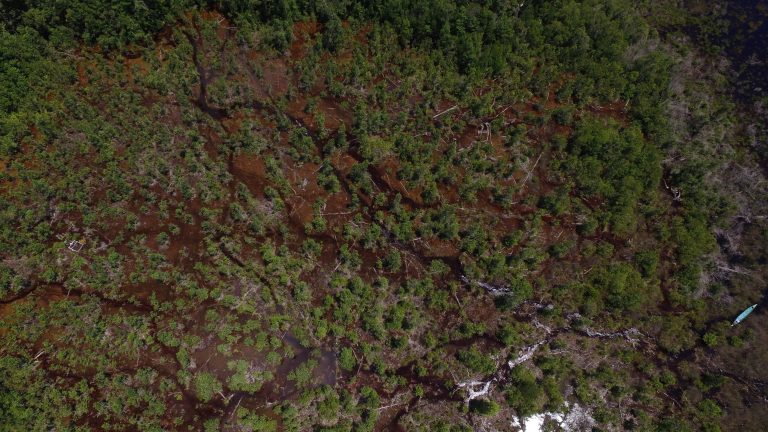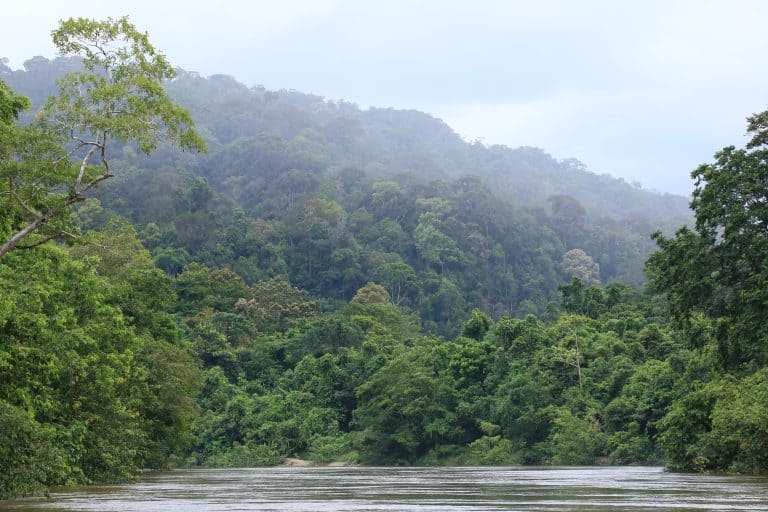We’re delighted to announce that one of our trustees, Professor Susan Page, was awarded the Member of the Order of the British Empire (MBE) at an investiture ceremony at Windsor Castle. The award, presented by His Majesty the King, honours Professor Page’s extraordinary contributions to peatland research, conservation, and climate science over more than three decades.
From the wetlands of Borneo to Windsor Castle
Professor Page, based at the University of Leicester, is widely recognised as one of the world’s foremost experts on tropical peatland ecosystems. Since beginning her peatland research in Central Kalimantan in 1993, she has played a transformative role in advancing scientific understanding of peatlands and their function in global carbon cycling.
Her pioneering work, spanning ecology, biodiversity, natural resource use, and carbon dynamics, has shaped international policy, informed sustainable land-management practices, and supported global efforts to mitigate climate change. Earlier in her career, her contributions were recognised with the Busk Medal from the Royal Geographical Society (2013) and the Theodore Sperry Award from the Society for Ecological Restoration (2015).
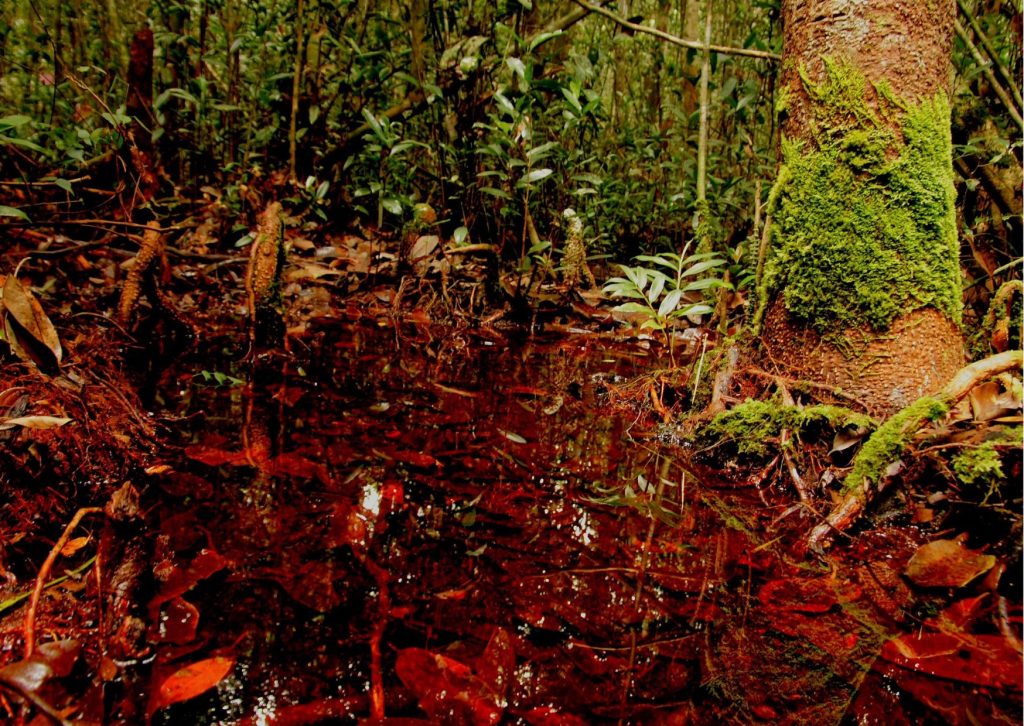
Why tropical peatlands matter
Despite covering just 3% of the planet’s land area, peatlands store twice as much carbon as all the Earth’s forests combined. Borneo’s tropical peat swamp rainforests are a globally important carbon store and biodiversity hotspot, home to an incredible array of rare and threatened species, including the Critically Endangered Bornean orangutan.
In Central Kalimantan alone, peat swamp forests store an estimated 6.4 gigatonnes of carbon, equivalent to more than 17 times the UK’s total carbon emissions in 2024. Yet these ecosystems face severe threats from drainage, agricultural expansion, and devastating wildfires.
A guiding force for conservation
As a Trustee of Borneo Nature Foundation International, Professor Page has played a vital role in guiding our mission to protect and restore some of the most biodiverse and carbon-rich forests on Earth. Her leadership and expertise have helped strengthen collaborations between scientists, local communities, and conservation practitioners across Southeast Asia.
“Professor Page is one of the world’s foremost peatland scientists and her research has provided the academic foundation for much of BNF’s scientific work,” said Dr Mark Harrison, Co-Director of Borneo Nature Foundation International.
“This has involved publishing some of the first accounts of the importance of Borneo’s tropical peat-swamp forest for mitigating fire incidence and carbon emissions, and for biodiversity conservation. These findings highlight the critical importance of tropical peatland conservation and restoration, with Sue’s work also exploring optimal strategies to advance these efforts.”
Professor Page has also been an invaluable collaborator in major interdisciplinary projects, including the Kalimantan Lestari (KaLi) project, which examines the multiple hazards associated with peatland fires in Kalimantan.
“Professor Page has been an incredible champion of tropical peatlands and their conservation throughout her long career, and this MBE is thoroughly deserved,” added Dr Harrison.
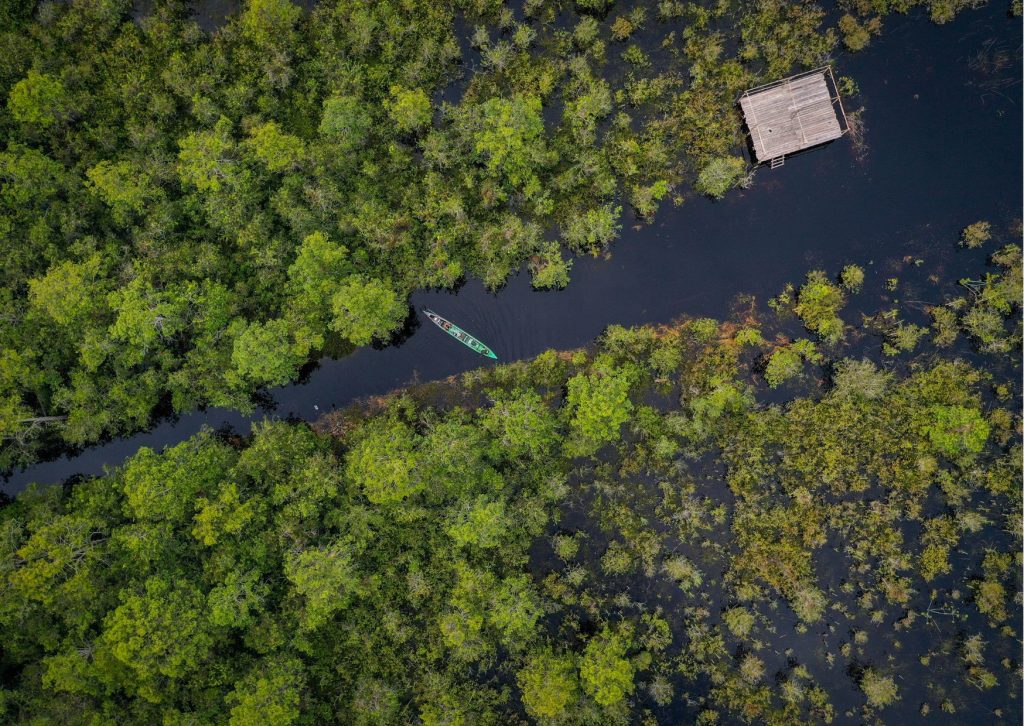
A moment of recognition — and reflection
Speaking after the ceremony at Windsor Castle, Professor Page shared her gratitude and hope for the future of peatland conservation:
“I was very surprised to receive an MBE but delighted that the critical role of peatlands in the global carbon cycle and in supporting biodiversity is being recognised through this honour. My research journey would not have been possible without the wider peatland science community, both here in the UK and overseas… I hope that my award will shine a stronger light on the urgent need to protect and restore some of the world’s most important natural resources.”
Professor Page’s MBE not only celebrates her remarkable personal achievements but also represents a milestone for tropical peatland conservation worldwide. Her work continues to inspire scientists, conservationists, and communities working to protect the world’s most carbon-rich and biodiverse ecosystems. We at BNF are honoured to have her leadership and expertise guiding our mission.

